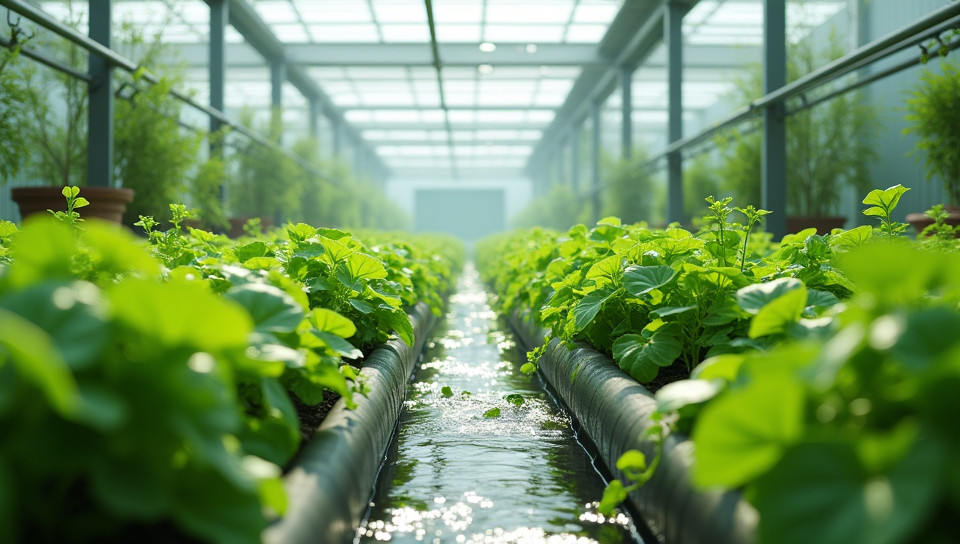Hydroponic systems conserve water 96%

The Future of Sustainable Agriculture: How Hydroponic Systems Conserve Water
As the world grapples with the challenges of climate change, water scarcity, and food security, innovative solutions are needed to ensure a sustainable future for agriculture. One such solution is hydroponic systems, which have been gaining popularity in recent years due to their ability to conserve water while increasing crop yields.
What is Hydroponics?
Hydroponics is a method of growing plants in a nutrient-rich solution rather than soil. This approach allows for precise control over the amount of water and nutrients that plants receive, making it an efficient way to grow crops. In traditional farming methods, up to 70% of water is lost due to evaporation and runoff, whereas hydroponic systems use significantly less water.
The Benefits of Hydroponics
Hydroponic systems offer numerous benefits for conserving water:
- Reduced water consumption: Hydroponics uses up to 90% less water than traditional farming methods.
- Increased crop yields: By providing plants with a consistent supply of nutrients, hydroponics can increase crop yields by up to 30%.
- Improved water quality: Hydroponic systems allow for the recirculation and reuse of water, reducing the amount of wastewater generated.
- Reduced land use: Hydroponics can be used in urban areas, reducing the need for large plots of land.
The Science Behind Hydroponics
Hydroponic systems work by providing plants with a balanced solution of nutrients that are absorbed through their roots. This approach allows for precise control over the amount of water and nutrients that plants receive, making it an efficient way to grow crops. In addition, hydroponic systems can be designed to use rainwater or greywater, further reducing the demand on freshwater resources.
The Future of Hydroponics
As the world continues to face the challenges of water scarcity and food security, hydroponic systems are likely to play a larger role in sustainable agriculture. With their ability to conserve water, increase crop yields, and improve water quality, hydroponics offer a promising solution for a more sustainable future.
Conclusion
Hydroponic systems have the potential to revolutionize the way we grow crops, making them a key component of a more sustainable food system. By conserving water, increasing crop yields, and improving water quality, hydroponics offer a viable alternative to traditional farming methods. As the world continues to face the challenges of climate change and water scarcity, it is time to adopt innovative solutions like hydroponics to ensure a secure and sustainable future for agriculture.
- Created by: Ren Ōta
- Created at: Feb. 1, 2025, 2:50 p.m.
- ID: 19863





